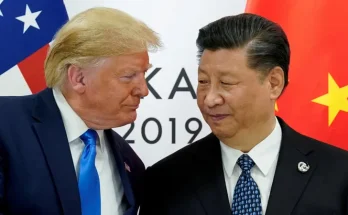“We believe democracies should lead in AI development, guided by core values like freedom,” says company’s spox
Google Updates AI Principles, Drops Pledge Against Weapons & Surveillance
SAN FRANCISCO – Google has quietly removed its longstanding commitment to avoiding AI development for weapons and surveillance, signaling a shift in policy amid evolving geopolitical and security priorities.
The change, revealed in an updated AI principles blog post on Tuesday, comes just weeks after Google CEO Sundar Pichai and other tech leaders attended the inauguration of U.S. President Donald Trump.
New AI Principles: Focus on National Security
The revised policy—outlined by Google DeepMind chief Demis Hassabis and Google research head James Manyika—omits previous assurances that AI would not be used for:
✅ Weapons designed to harm people
✅ Surveillance violating international norms
Instead, the updated statement emphasizes collaboration with democratic governments to develop AI that “protects people, promotes global growth, and supports national security.”
“We believe democracies should lead in AI development, guided by core values like freedom, equality, and respect for human rights,” the blog post states.
Rollback of AI Safety Regulations Under Trump
The shift follows Trump’s decision to rescind Biden-era AI safety regulations, which had required companies to:
🚫 Share AI safety test results
🚫 Report serious risks to national security, the economy, or citizens
With fewer federal restrictions, U.S. tech giants—including Google—now have greater autonomy in AI research and development.
Google’s Past Controversies & Pentagon Ties
Google originally introduced its AI principles in 2018, following employee backlash over its involvement in Project Maven, a Pentagon initiative using AI to improve military target identification. Amid internal protests, Google ended its role in the project and pledged not to use AI for weapons.
That promise is now gone.
The Global AI Arms Race
With nations racing for AI supremacy, Google’s policy shift reflects the increasingly complex geopolitical landscape shaping AI development.
“Billions of people are using AI in their everyday lives,” the post concludes, hinting at Google’s evolving role in AI-driven security and defense.



